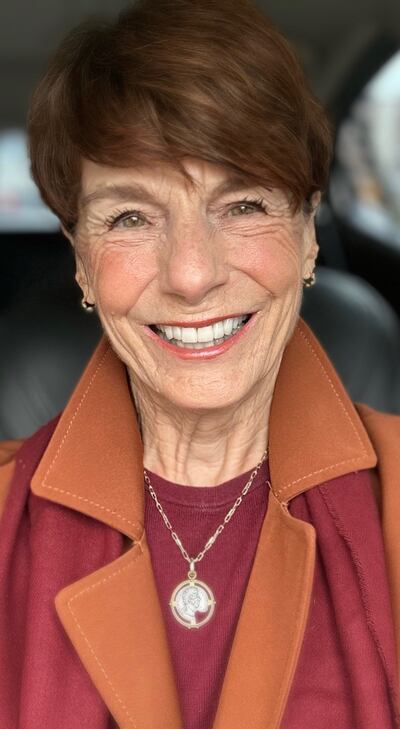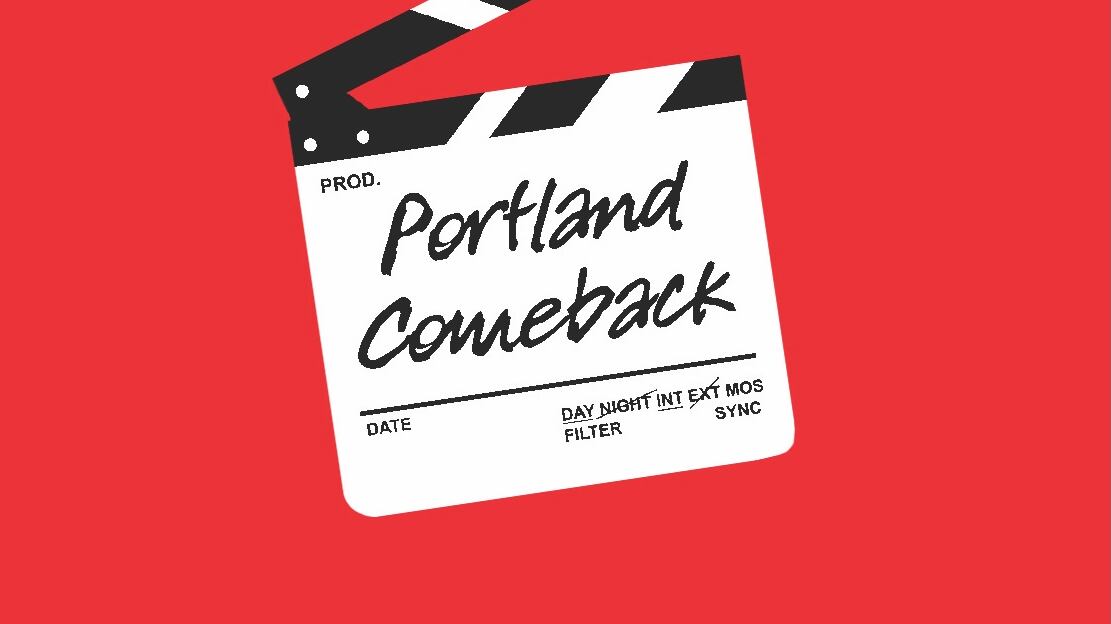The SAG-AFTRA Portland Local is a small union. At about 600 actors and performers members, it’s down there with Nashville’s as the two smallest chapters of the vaunted Screen Actors Guild–American Federation of Television and Radio Artists labor union.
But the current board elections for the Portland local are certainly bringing the drama. Ballots went out in the mail last week, with 12 members running for seven seats. Interviews with union members reveal a chasm within the local’s ranks, with accusations of “mudslinging,” “carpetbagging,” a “MAGA takeover,” and suppression of freedom of speech flying.

Much of the drama centers on one lightning rod of a member: Mary McDonald-Lewis, known in the industry as “Mary Mac,” who is running for a spot on the local board. McDonald-Lewis is already two years into a four-year term as Portland’s delegate on the national SAG-AFTRA board. She is an established voice actor, dialect coach, and the voice of OnStar’s “Mary” in General Motors’ navigation system. She also voiced Lady Jaye in the 1980s G.I. Joe animated series.
WW previously wrote about McDonald-Lewis in February, when Milagro Theatre canceled her run of The Macbeths after seeing McDonald-Lewis disparaging gender transitions on social media, such as posting a photo of a trans woman with the words “not a real woman” above it. She moved to North Carolina in June. Since then, McDonald-Lewis has described herself on her X profile as “cancelled & doxed for defending women’s rights in Portland” and started a fundraiser to remount The Macbeths.
Actor Tyler Hughs has been a member of SAG-AFTRA since 2011. He says it’s “insane” that McDonald-Lewis is campaigning for the Portland local board, especially now that she no longer lives in Portland. On July 21, she called Portland “my former idiot city” on X and expressed gratitude for living 3,000 miles away.
“I want Portland to be represented by somebody invested and present in the city,” Hughs says. “She hates Portland so much…I don’t understand how people who denigrate the city feel they’re bringing work and jobs to the city.”
McDonald-Lewis tells WW that, as a national representative, she has to sit in on local board meetings, which are held virtually anyway. Having a local seat allows her to vote. McDonald-Lewis has served on SAG-AFTRA boards in Los Angeles and Portland for nearly four decades.
“Given my 38 years’ experience in this position, I want to continue to bring that value to the job,” she says.
The Portland local’s bylaws, which are typical for SAG-AFTRA, allow out-of-towners to serve on the board so long as the chapter is their primary membership. Two other board members live at least part time in L.A., McDonald-Lewis says, and their residence has never been called into question, including that of Erik Nicolaisen, who is running for vice president and splits his time between Portland and L.A. Working television and film actors travel for work; to be jetting back and forth to L.A. or New York typically gives them more cachet, not less. But candidates on both sides of the election are committed to beefing up Portland’s industry, whose heyday with productions such as Portlandia, Grimm and The Librarians (which you might recognize Hughs from) ended about a decade ago.
When Hughs receives his ballot in the mail, he plans to vote against McDonald-Lewis and the four other candidates that make up a slate called #PortlandComeback.
“For her to win would be quite a feather in her red cap,” Hughs says. (McDonald-Lewis has been photographed wearing a Make America Great Again hat. She says it was a Halloween costume.)
Adam Dunlap is running for president of the union as part of the #PortlandComeback bloc. His résumé includes roles on Law & Order: Organized Crime, Grimm and the CBS soap opera Beyond the Gates. He first met McDonald-Lewis in 2017, when he hired her to be his accent coach to learn a New York Italian dialect for a film role. His focus is on helping actors book more jobs, with higher wages, and creating a robust film scene in Portland with a higher tax incentive to attract productions. The tax incentive has only budged from $20 million to $21 million over the past five years, Dunlap says, and that was for inflation.
It’s not attracting enough union work to town to sustain SAG-AFTRA’s membership, which has become a main talking point for Dunlap and the other candidates. Dunlap estimates that 2% of Portland members make their living as actors, increasing the temptation to do taboo “off-the-card” (nonunion) gigs.
A scan of the list of local shoots from the Oregon Film office includes some solid indies—Trash Baby premiered at South by Southwest this year, and Horsegirls and Paradise Records hit Tribeca—but is short on bigger productions, save Laika’s forthcoming animated feature Wildwood. But those characters are puppets, many of whom are voiced by celebs like Carey Mulligan and Awkwafina.
Dunlap doesn’t always agree with McDonald-Lewis’ politics—“I’m not MAGA,” he says—and thinks that leaders in the union ought to be politically neutral. He says he first saw her social media posts last week and was “saddened,” he says. So now he’s holding two things to be true: “I don’t think she should be saying these things, but there’s no doubt the experience she brings to the board is invaluable.”
In an email interview with WW, McDonald-Lewis says, win or lose the local election, she plans to retire from union service in two years, when her national board term is up, and transfer her membership to the SAG-AFTRA Washington-Mid Atlantic Local.
When asked how she feels about trans people and if that’s relevant to her leadership position in the union, McDonald-Lewis says she evaluates people solely on the content of their character and that her personal opinions do not have anything to do with her public service. It’s a free-speech country and it ought to be protected, she says, even when the speech attacks her.
“In the case of several of the #PortlandComeback team’s opponents, publicly stated hate speech for anyone not voting for their preferred presidential candidate has been shocking to see,” she says. “I just don’t know how one serves a membership with disdain and hatred for something like half the members.”

